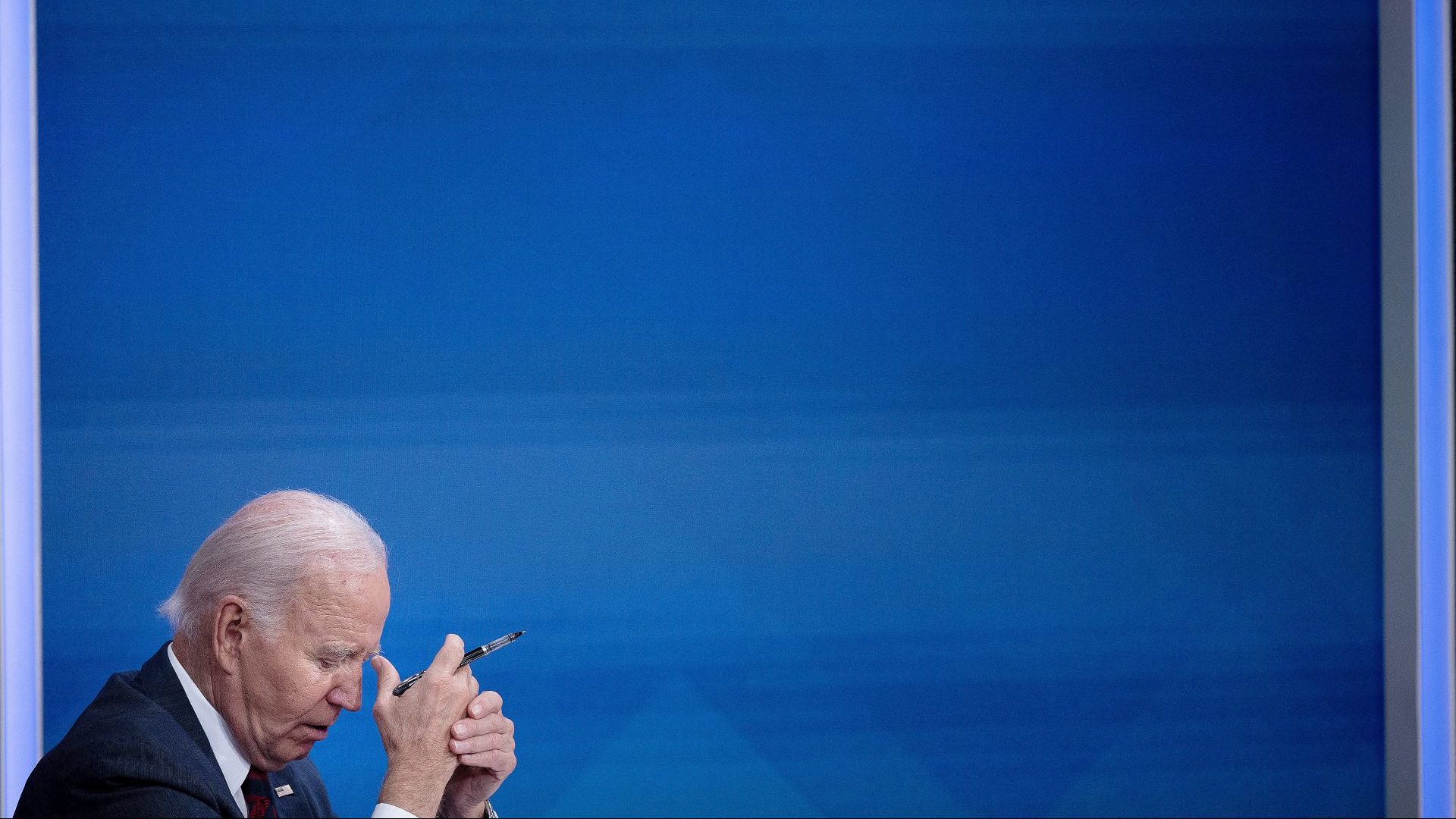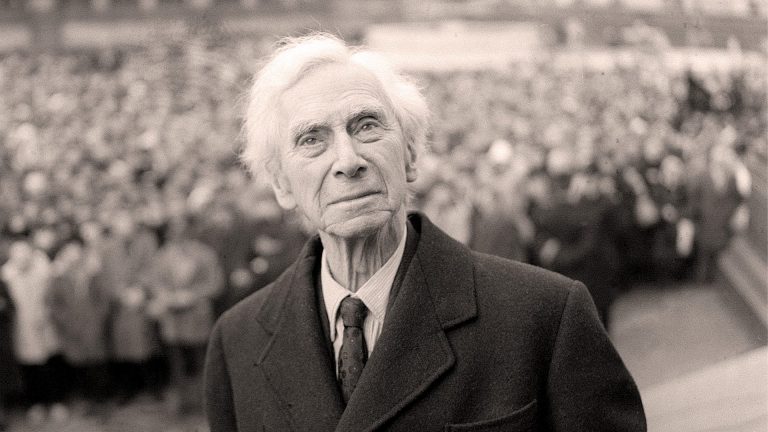In his memoir, Promise Me, Dad: A Year of Hope, Hardship, and Purpose, Joe Biden writes movingly of his son Beau’s death in 2015 from brain cancer at the age of 46.
Naturally, the then vice-president was poleaxed by grief. But he never forgot the pledge that Beau insisted he make: “You’ve got to promise me Dad, that no matter what happens, you’re going to be all right”. He understood that his son was urging him not to “retreat from my obligations to the wider world”.
Among the causes to which he then devoted himself was cancer research: “we would create and fund a Cancer Moonshot to reinvent the systems for prevention, research, and care, bringing together the best clinicians, scientists, and other experts to double the rate of progress and deliver real outcomes for patients. Why couldn’t we end cancer as we know it?”
Now, a decade after Beau’s death, Biden has been diagnosed with the same disease: in his case, an aggressive form of prostate cancer that has spread to his bones. Though his condition is incurable and such news is grim under any circumstances, the statement issued by the former president’s office on Sunday indicated that the cancer “appears to be hormone-sensitive which allows for effective management”.
This will probably involve treatment with androgen blockers, which can slow the growth of tumours, combined with bespoke chemotherapy, advanced radiotherapy and the latest forms of immunotherapy. The very science that Biden has valiantly championed for many years may help increase his life expectancy.
And this is precisely why David Axelrod, former chief strategist to Barack Obama and longtime critic of Biden’s bid to seek re-election, was wrong to say on CNN on Sunday that the recent debate about his cognitive and physical decline while he was president – ignited by one new book in particular – should now be “more muted and set aside as he’s struggling through”.
The very science to which Biden is turning is rooted in a dispassionate commitment to the truth, to evidence and to forensic investigation. Yes, a sense of decorum is essential to any civilised society. But it should not be misappropriated as an excuse to evade difficult discussions or to bury awkward revelations.
In Original Sin: President Biden’s Decline, Its Cover-Up, and His Disastrous Choice to Run Again (Hutchinson Heinemann), CNN anchor Jake Tapper and Axios reporter Alex Thompson describe nothing less than a historic political scandal; the consequences of which are now being felt around the world as Donald Trump gets busy.
Biden’s cognitive impairment was known to those around him, but his refusal to acknowledge this himself was matched only by the determination of his closest aides to shield him from media scrutiny and from contact with his own cabinet, Democratic senators and members of Congress.
As shocking as the book undoubtedly is, it is also forensic, measured and, as a consequence, absolutely damning. To their great credit, Tapper and Thompson allow the facts to speak for themselves.
It is perfectly possible to feel the deepest sympathy for Biden’s new medical predicament; and to be appalled by the cover-up that took place on his watch. Indeed, it is intellectually and emotionally lazy to confuse the two issues.
Now that he is a private citizen, Biden’s health is an entirely personal matter; when he was the most powerful person on earth, and intending to remain so until January 20, 2029, it was a matter of the deepest public significance. And that distinction stands, however uncomfortable it may feel to some.
“It was an abomination,” one prominent strategist tells the authors. “He stole an election from the Democratic Party; he stole it from the American people.”
“He totally fucked us,” says David Plouffe, the seasoned adviser recruited to turbocharge Kamala Harris’s doomed 107-day campaign, of Biden’s decision to run again, his disastrous debate with Trump on June 27 and the unforgivable delay of more than three weeks before he stepped aside.
At the heart of the story is the so-called “Politburo” of the president’s most trusted aides: Mike Donilon (part of Biden’s inner circle since 1981); Steve Ricchetti (who had been one of Biden’s chiefs of staff when he was vice-president); Bruce Reed (who had been another); and Ron Klain (chief of staff from January 2021 to February 2023, nicknamed “the prime minister”). According to one senior source: “Five people were running the country, and Joe Biden was at best a senior member of the board”.
The Politburo and the next concentric ring of border guards did everything in their power to insulate Biden from the rapid-fire interaction that is the basis of any successful political leadership. They restricted his hours of work, supplied him with cue cards for everything, and ensured that he read from teleprompters in settings in which a parish councillor, let alone the leader of the free world, should have been able to speak off-the-cuff.
Most egregiously, they kept his pollsters away from him – ensuring that he was not exposed to real-time data about public opinion (though he only had to read the press to know what Americans thought about his frailty). With the tacit collusion of Biden’s longtime physician Dr Kevin O’Connor, they ensured that he was never subjected to a formal cognitive test in his routine medical check-ups.
Still, the deterioration was increasingly and painfully clear. On December 9, 2022, in the Outer Oval, he could not place his national security adviser Jake Sullivan, and Kate Bedingfield, his communications director. “Steve…” he said to the former. “Steve…” Then, turning to Bedingfield, he called her: “Press”.
When George Clooney, a longtime ally of the president, met him at a fundraiser in Los Angeles on June 15, Biden did not recognise the Hollywood star. As Tapper and Thompson write: “A man he had known for years. Clooney had expressed concern about Biden’s health before – a White House aide had told him a few months before that they were working on getting the president to take longer steps when he walked – but obviously the problem went far beyond his gait. This was much graver. This was the president of the United States?”
The Politburo’s myth that only their boss could win in 2024 “became almost a theology, a near-religious faith in Biden’s ability to rise again. And as with any theology, skepticism was forbidden”. They demanded unquestioning loyalty to the president on the grounds that Trump represented a grave threat to democracy; but, in contradiction, they also claimed that the Republican nominee was headed to jail.
As Tapper and Thompson put it: “It wasn’t a straight line of decline; he had good days and bad. But until the last day of his presidency, Joe Biden and those in his innermost circle refused to admit the reality that his energy, cognitive skills, and communication capacity had faltered significantly”.
If this was not a conspiracy, then what is? Biden’s presidency was in many respects successful. But that did not justify the plot to conceal his rapid decline – a plot that was bound to fail, and did.
In February, special counsel Robert Hur delivered his report on Biden’s allegedly unauthorised storage of classified documents and, on the basis of his own interview with the president and earlier audio recordings of conversations with his ghost writer Mark Zwonitzer, described him as “a sympathetic, well-meaning, elderly man with a poor memory”. He could not remember, for example, when Beau had died, or when he had been vice-president.
Hur’s entirely legitimate point concerned Biden’s state of mind when he retained the files; as well, by implication, his fitness for trial. For this, he was publicly vilified by senior Democrats.
Biden himself seethed in a press conference that it wasn’t “any of their damn business” to ask about his son’s death, that he “knew what the hell I’m doing” and that he didn’t need the special counsel’s “recommendation”. As if to make Hur’s point for him, he then proceeded to confuse the presidents of Mexico and Egypt.
There was a price attached to telling the truth. The former special counsel struggled for some months to find work after these denunciations. According to one Democrat donor: “if you said anything, you got your head chopped off”. Better to sleepwalk towards disaster than to be honest.
A handful dared to breach omertà. Dean Phillips, who stood down last year as a congressman for Minnesota, tried courageously to mobilise a serious primary challenge to the president and, in the end, undertook the task himself, knowing he would fail. “People will talk their way into beliefs,” Phillips would later say of the Biden cult. “Even OJ believed he didn’t do it at the end.”

Overwhelmingly, however, senior Democrats – whatever their suspicions, whatever fears they had based on troubling encounters with the president – kept silent until the aftermath of the debate.
Loyalty? Perhaps. But also selfishness. A presidency is a vast complex of vested interests, rewards and punishments. Most of those in a position to speak up, or even ask questions, kept their counsel until it was too late.
What made the cover-up so ludicrous (as well as disgraceful) was that the public was never fooled. In 2020, 34% of voters had thought Biden too old to be president. By 2023, that figure had risen to 71%.
In the modern world of smartphones, social media and digital bombardment, the Politburo’s hyper-choreographed pageant was always going to be rumbled. There were too many clips of Biden falling, or fumbling his words, or gawping in a state of confusion. What Tapper and Thompson call the “tendency towards groupthink, inertia and an extreme and wildly counterproductive risk aversion” was utterly unsuited to contemporary political culture.
Even before the disclosure of Biden’s illness on Sunday, it was being asked: why dredge all this up now that Trump is back in the White House, wrecking the economy, shredding the constitution, turning the republic into a patrimonial kleptocracy, embracing foreign autocracies? Precisely because lies told for so long by Biden and his team played such an important part in the return of MAGA.
As Tapper and Thompson put it: “[F]or those who tried to justify the behavior described here because of the threat of a second Trump term, those fears should have shocked them into reality, not away from it”.
In his brilliant book Ruling Oneself Out: A Theory of Collective Abdications (2008), the sociologist Ivan Ermakoff identifies “the Statement of Silence” as a critical feature in such crises, where “silence is a public stance, and as such is strategically informative”. The silence around the Biden White House was deafening.
Original Sin is not only a fine work of instant history. It is also a parable and a warning to all progressives. Traditionally, the Right’s greatest sin has been its sense of collective entitlement – although, in the populist age, that ancestral vice is being supplanted by digitised bigotry, shameless grift and an indifference to due process.
The Left’s counterpart weakness is the inclination to believe that its moral rectitude justifies all else. Biden might have been physiologically incapable of serving as president at all, much less running for a second term. But he was on the side of the angels. And so it was positively impertinent to question his capacity to do so.
Such delusions and magical thinking are a sure way of failing the public. One thinks of Labour’s deranged re-election of Jeremy Corbyn as leader in 2016; of the use of the hashtag #BeKind to silence difficult debates; of safety-first reticence rather than statesmanlike candour; of progressives’ misplaced conviction that there is a “right side of history” – happily aligned with their own ideology – and that the electorate will always come round to their collective wisdom when they have thought it through properly. The old Marxist idea of “false consciousness” is still doing its corrosive work.
Such deception and self-deception come at a terrible cost. Even now, Biden insists that he would have beaten Trump. He said as much in his appearance with his wife on ABC’s The View on May 8 – a serious insult, if only by implication, to Harris. Asked about the allegations of cognitive impairment, he replied: “They are wrong. There’s nothing to sustain that”. The audience lapped it up.
Some are now casting Tapper and Thompson as the villains of the piece – as though they knew about Biden’s diagnosis in advance. But this is not the time to confuse normal sympathy for an ill man with mere sentimentality. The stakes are too high, the dangers to democracy, the rule of law and the global order too grave for any such indulgence.
As Plouffe tells Tapper and Thompson: “never again can we as a party suggest to people that what they’re seeing is not true”. On Friday’s episode of Pod Save America, Beto O’Rourke, a former presidential contender and one of the best communicators in the Democratic party, nailed the problem.
“It’s not just you and me, but our kids and grandkids, and the generations that follow that might have to pay the price for this,” the former Texas congressman said to host Jon Favreau. “We might very well lose the greatest country that this world has ever known… It deeply and gravely and perhaps – we’ll see – irrevocably harmed this country… The time to be polite, and kind, and respectful is over. You know, Democrats, it seems, care far too much about being right, and being polite, than being in power”.
Some may feel, in the light of Biden’s diagnosis, that such words are too harsh. Yet it is facts, not feelings, that, we should fervently hope, will prolong the former president’s life; medical science, not cloying “thoughts and prayers” on social media.
“Don’t say mean truths” is apparently a Biden family motto. And what a lousy motto it is. The truth, however unpalatable, is the basis of every robust democracy; and, often, not least in the mayhem that Biden left behind him, it’s all that we have.











